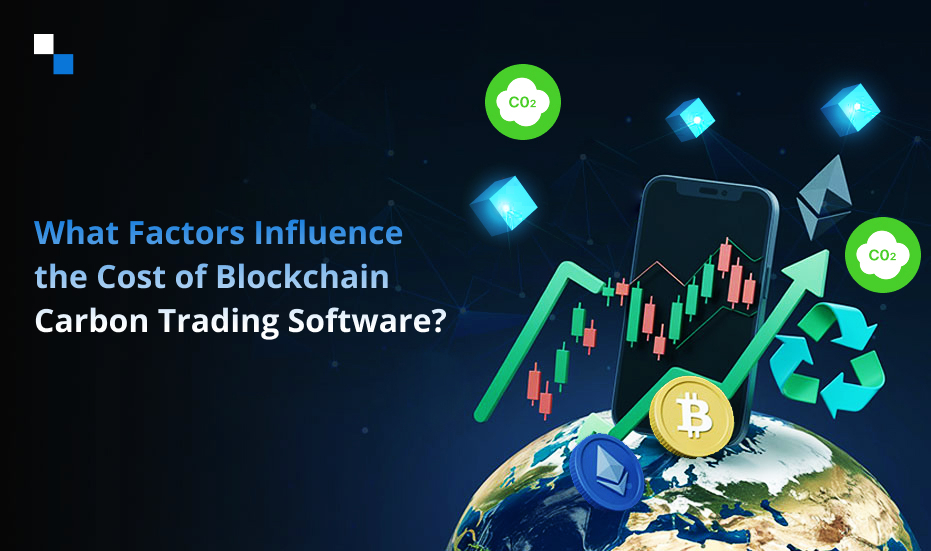
Web3 and Identity: Reinventing the Way We Verify and Authenticate
March 15, 2023
Customize White Label Crypto Trading Script To Build A Profit Making Platform
March 17, 2023The global supply chain is being impacted significantly by recent technical developments and increasing industrial growth. For example, artificial intelligence is taking over quality assurance, IoT devices and drones are tracking production and maintenance, and more than 1.9 million robotics are already in use in manufacturing and warehouses around the world. To thrive today, businesses must be nimble, flexible, and responsive. Those who promote constant innovation throughout their organizations and supply chains, as well as differentiate themselves in a highly competitive marketplace by keeping dynamic and relevant, will prosper. Blockchain technology in the supply chain has developed over the last fifty years to become one of the fastest and most complicated sectors operating on a worldwide scale.
After all, increased globalisation has resulted in an increase in the complexity of supply chain management as a by-product. The use of Blockchain for the supply chain quickly addresses all of the components for process simplicity and cost reduction in farming activities. The issue, however, is that, while business models and expectations have evolved, concerns about transparency and origin tracking keep influencing the sector. As the pace of change quickens, boosting the effectiveness and accessibility of your company’s supply chain becomes increasingly important. Thankfully, Blockchain for the supply chain aid in the process’s simplification. Let’s explore more!
Blockchain for Supply Chain: The Missing Link in Effective Management
Large corporations, such as Maersk and IBM, which collaborated to establish the platform, are already building systems to take advantage of the end-to-end transparency and accountability that blockchain technology allows. By connecting with and supplementing electronic data interchange (EDI) systems, the technology could potentially help other companies save billions of dollars and decrease inefficiencies. This is another evolutionary stage in the supply chain, following the replacement of paper-based systems with digital document transfer between trading partners.
The use of Blockchain technology in the supply chain is a novel solution to a wide range of issues. Many processes are involved in a typical supply chain, such as raw material procurement, manufacturing, financing, and so on. These steps may occur in one or multiple transactions. These one or more actions are documented on different blocks in a blockchain supply chain. These records are subsequently spread across the blockchain’s network of computer systems, making the information incredibly accessible and transparent. Every transaction in the supply chain is recorded on the blockchain and replicated in real-time, making every stakeholder an important component in all transactions.
How Does Blockchain Technology Work For Supply Chain Management?
Blockchain is a type of distributed ledger system that stores records of digital data or ‘exchanges’ in a tamper-resistant manner. When a transaction is performed on the system, it is broadcasted to a peer-to-peer network of interconnected computers known as nodes. Each of them calculates equations to examine and validate the transaction for network consistency. After approval, the transaction is combined with other transactions to form a data block for the ledger.
Blockchain technology can be used by businesses to trace any transaction, allowing them to share papers, personal information, and cryptocurrency. It is extremely difficult to manipulate the ledger because it is widely dispersed over the network. To make a change in the ledger, you’d have to log the modification on every node in the network at the same time. If this is not done, the network detects that one record differs from the others and marks the operation as corrupt. Consider the technology to be similar to a Google document, where multiple individuals can see and modify the same document at the same time, as opposed to a Word document that is locked and owned by a single person. With ‘Track Changes’ enabled, every networked node can access and modify the Blockchain technology in the supply chain at the same time.
Perks of Using Blockchain in The Supply Chain
- Tracking in real time
Transparency and decentralisation are hallmarks of a Blockchain-powered supply chain management method. This makes it easier to be aware of all activities taking place at any given time. This is obvious not only in the industrial sector but also in how technology makes the fashion business transparent.
- More rapid processing
Even though distribution channels can manage complicated and big data sets, a number of procedures, particularly those in lower supply tiers, are slow and largely reliant on paper – a situation that is all too frequent in the shipping business. The involvement of intermediaries exacerbates the situation. Blockchain reduces operating time by removing third-party intermediaries with Smart Contracts.
- Strong customer relationships
Consumers can learn everything they need to know about the product they’re using thanks to Blockchain. By making the order tracking process transparent, blockchain for ordering management plays a significant role in improving customer experience. Customers can also verify the authenticity of their purchases. Blockchain for the supply chain is building trust between consumers and various brands.
- Improving Accountability
Increasing demand for and rules governing provenance information is causing a significant change in the supply chain domain. Improved traceability through the incorporation of blockchain technology into the supply chain creates added value by mitigating the high cost of quality-related concerns such as reputational harm, recalls, and revenue loss due to grey or black market products.
- Effective traceability
The use of Blockchain applications in supply chain allows for more efficient licencing and ownership. Blockchain may be used to precisely licence services, software, and items with the use of smart contracts. Furthermore, blockchain provides consensus, which means that there is no disagreement in chains relating to transactions by design. All entities on the blockchain use the same ledger version, which includes the ability to track ownership information.
Conclusion
Consider a world in which stakeholders can see a product’s whole lifespan before it touches the shelf. Blockchain for supply chain management traceability is only one of many applications for this innovative technology. Continuing your learning journey is one of the finest ways to broaden your knowledge and remain up to date on the latest applications. Blockchain can be used to reduce counterfeiting, boost efficiencies, and enable a more accessible global economy!
Antier is here at every step with you in the journey of utilizing Blockchain technology in the supply chain management. Get in touch with us to streamline and optimise your company’s supply chain.



